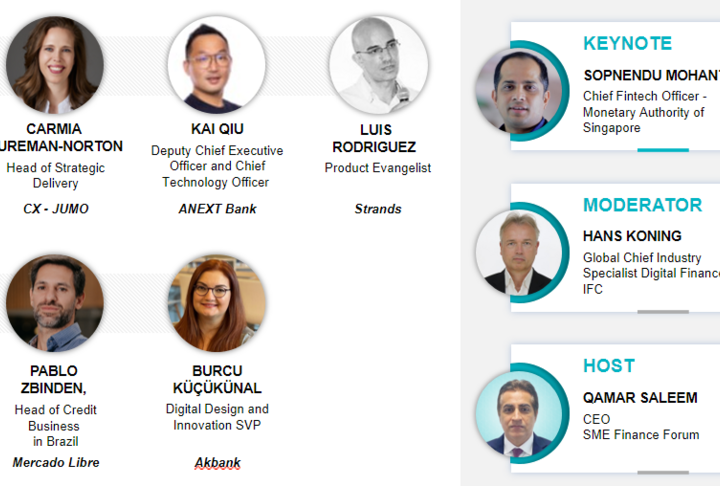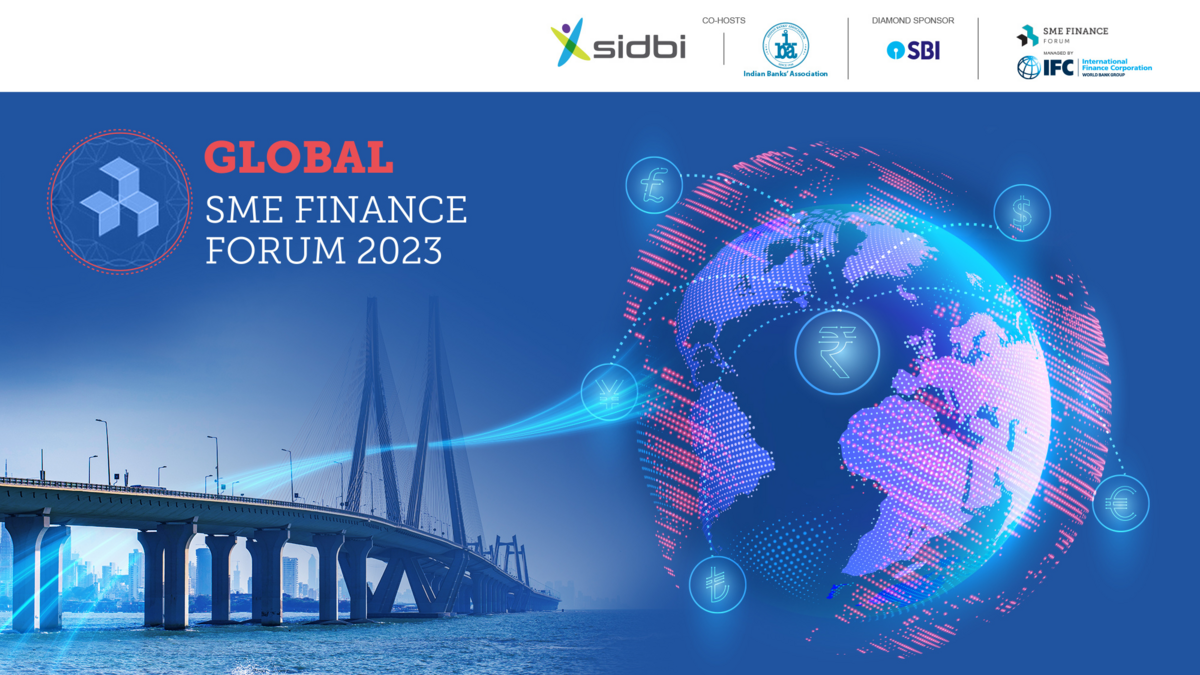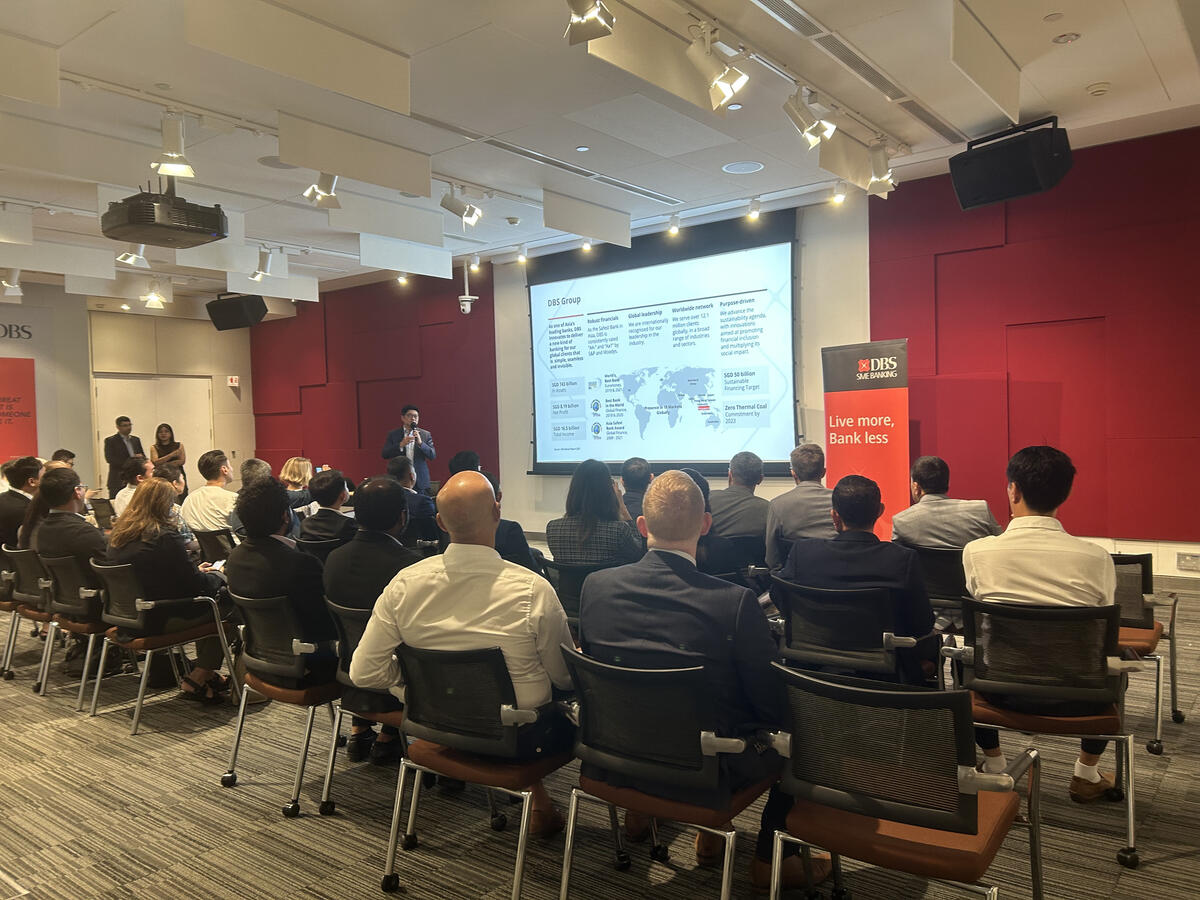Blog
Embracing automation to serve customers efficiently and rejuvenate SME Banking

The SME Finance Forum hosted a two-session webinar series on Digital Banking Solutions. For the first in the series, we examined how financial institutions can connect to fintechs through platforms, realizing the potential of new solutions in SME Finance. In the second webinar in the series, we discussed how banks are embracing automation and other digital innovations such as mining big data, artificial intelligence, and machine learning, to improve core SME lending processes.
Alper Eker, Head of Retail Credit Risk at Garanti BBVA in Turkey, opened the webinar on Wednesday, March 25th with a discussion of their credit automation pilot “SME Legal Entities” project, first launched in 2018. Garanti BBVA has used automation to find more efficient and viable ways to serve the sizeable micro, small and medium-sized SME market in Turkey. “One of the biggest challenges is the information bias in the SME segment and we’re using automation to reverse this bias,” Alp said as he described that an entrepreneur knows much more about what’s actually happening in their business than the banker, which makes it difficult for banks to manage risks efficiently. The automation pilot addresses two main problems of SME financing – accessing and processing information about clients. The first phase of the pilot has been standardization and centralization of underwriting rules which enables Garanti BBVA to automate record checks and automatically upload several types of documents, reducing the amount of time spent on tedious paperwork. The second phase is the deployment of algorithms for scoring, which should be launched this spring, and augments human decisioning with deep learning algorithms to make better and more standard decisions. Garanti BBVA has already realized many benefits of this project – reduction of loan approvals from days to minutes and more effective NPL management to name a couple. During this current COVID-19 crisis, their system is proving to be useful for digital transactions as well, such as loan extensions, enabling Garanti BBVA to better serve their SME clients.
Second to present was Sean Hunter, Chief Information Officer at OakNorth in the UK, a multi-billion-dollar digital bank focused on redefining lending to small and medium-sized businesses globally using its next-generation credit platform. Backed by SoftBank's Vision Fund, OakNorth Bank has taken the top spot on the FT's annual list of the 1,000 fastest-growing companies in Europe. Sean Hunter described their digital bank credit platform for banks, which serves the middle market segment of SMEs. OakNorth is focused more on the missing middle, a segment which has been difficult to lend to as banks see these loans as too big for automatic decisions, but too costly for manual decision making. OakNorth focuses on credit analysis, not credit approval, and by digitizing many functions, enables loan officers to focus on higher value-add services, not on repetitive processes and analytics. Sean stated: “Speed is incredibly important in lending,” as SMEs often want to finance a project and there are huge opportunity costs if they can’t move quickly. Oak North’s platform currently supports banks in credit analysis to help banks make an initial lending decision and continuous loan monitoring of a borrower’s situation. OakNorth’s capabilities include comparing data across a segment or geographical area, providing business insight into a bank’s portfolio relative to their comparators.
In summary, to really serve the SME market, automation and digitization can’t just be a marketing or IT function, it is more important to digitize the core processes so that you can serve your customers smartly and efficiently. Successful digital transformations can be seen as a way to rejuvenate the bank and look at customers anew to serve them better, embracing the people and embracing the change - a lesson that is important at any time, but especially in light of the COVID-19 crisis.
Contributor: Khrystyna Kushnir
Read the Questions and Answers from the webinar here:
-
Not all SMEs are early-stage companies, but many are. For SME's that are early-stage companies should we not consider financing by private equity rather than debt?
- For start-ups / early-stage SMEs, equity may be their only option as many lenders will require the business to demonstrate that it’s viable/profitable before it’s willing to offer a loan/debt finance
- That being said, there are debt options for start-ups / early stage SMEs too – including debt crowdfunding and P2P lending
- At OakNorth, our proposition is focused on enabling scale-ups / established, profitable SMEs to obtain the debt finance they need, quickly
-
What is the average size of the target market?
- OakNorth’s ultimate goal is to help millions of businesses around the world secure the finance they need to scale.
- We call our target market the “Missing Middle” – which we describe as the growth businesses who are the backbones of communities and economies globally, but who has been in banking’s blind spot for decades.
- The size of this market is several trillion dollars per year, so it’s substantial!
-
Can you comment on the financial data quality/customer level of formalization and how you build the cash flow projections?
- OakNorth’s Platform combines a deep understanding of credit, rich data sets (which include unconventional and previously unavailable data), cloud computing, and state of the art machine learning, to provide its bank partners with the insight and foresight they need to more holistically and profitably lend to the Missing Middle.
- We look at data from hundreds of sources (internal data, external data, data from partners, etc.), so now have millions of data items
-
What is the business model?
- Our business model is very simple. We license our Platform to banks and lending institutions around the world as a software-as-a-service solution.
- In addition to this, we leverage the Platform to do our own balance sheet lending here in the UK (via OakNorth Bank) where we have a banking license. We take in deposits from retail and business customers, and then lend those deposits out to the Missing Middle. The margin between these two activities is how we make money for the bank.
-
@sean- when you say you can be up and running in a few days, are you meaning a SaaS model or on-prem implementation?
- We mean as a SaaS model
- We can onboard new bank partners to the Platform in a matter of days. The benefits to the partner banks licensing the Platform are:
- A better borrower experience leading to accelerated revenue and business growth – loans that are customized for the borrower’s individual needs and completed in days or weeks vs months
- More attractive economics & scaled growth – origination and credit teams who can transact several times more deals per year
- An enhanced credit and portfolio performance – larger data sets and deeper analysis enable more informed credit decisions and proactive portfolio monitoring delivers better credit outcomes
-
@sean, if it is a SaaS model, how accommodative is your platform to adhere to the Bank's process and workflow or exception management?
- The OakNorth Platform works seamlessly alongside partner bank’s own credit and underwriting processes.
-
As a fully cloud-hosted, the Platform is easy and fast to deploy
For more information about OakNorth, please contact:
Valentina Kristensen
Director, Growth & Communications
Telephone: 07572 349009
Email: valentina.kristensen@oaknorth.com
57 Broadwick Street,
London, W1F 9QS











